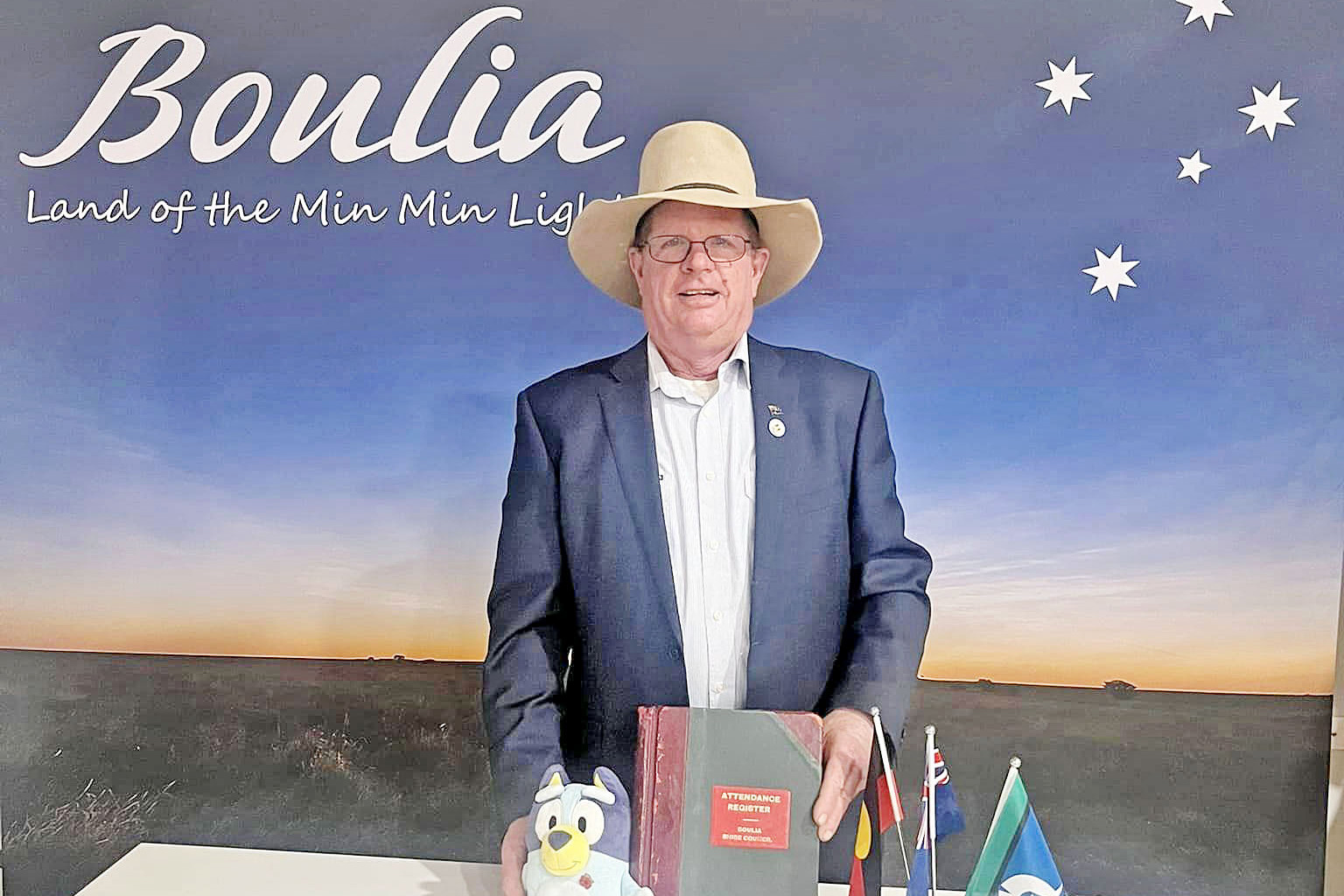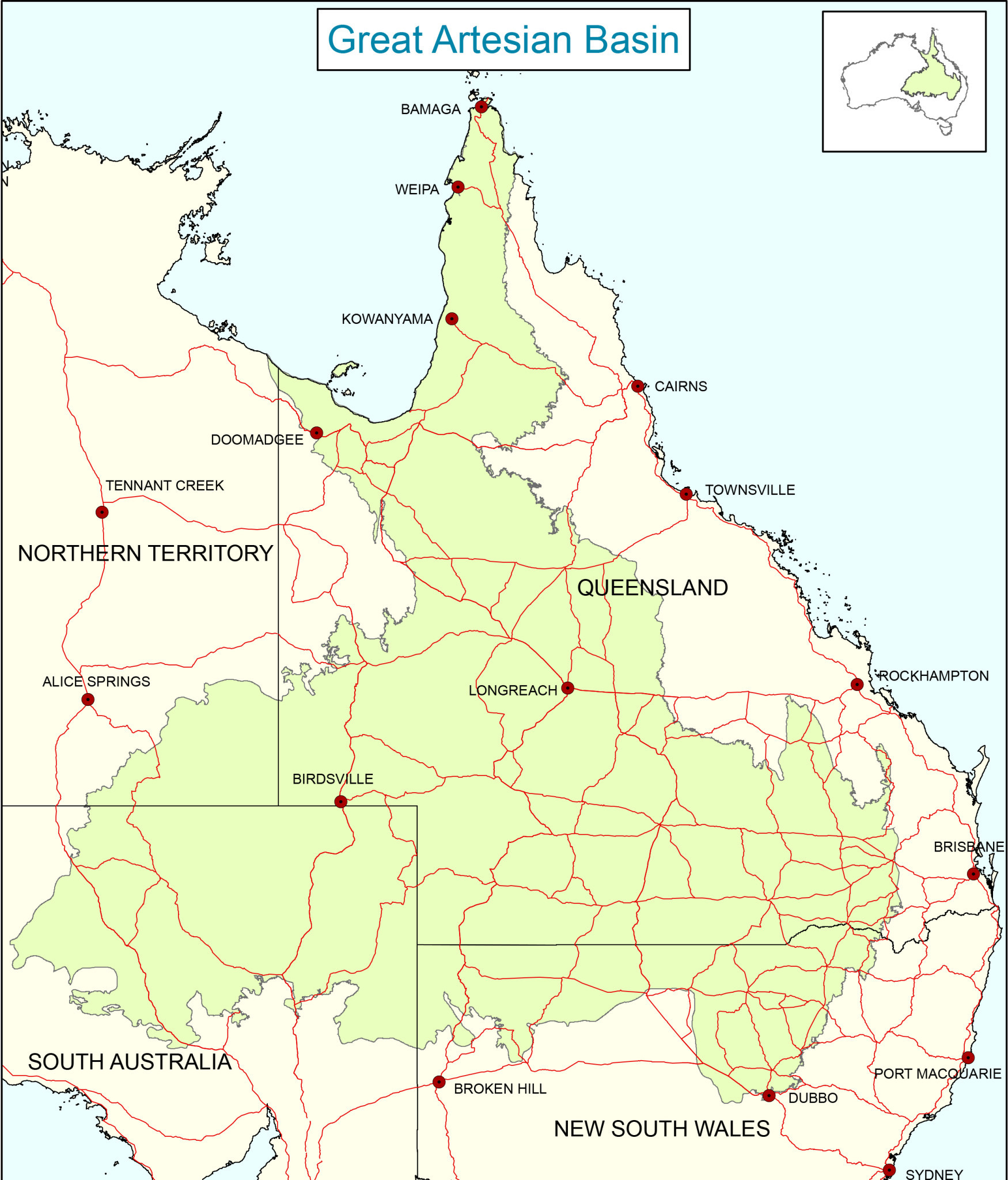General News
5 June, 2024
Boulia mayor happy with ‘win’ but basin fight isn’t over
The Outback leader wants federal protection for the Great Artesian Basin.

Boula Shire mayor Rick Britton said federal intervention will be required to ensure there is a permanent ban on carbon capture and storage activities across all corners of the Great Artesian Basin (GAB).
The call comes after the Queensland government announced on Friday its intention to prohibit greenhouse gas stream injection and storage into underground formations within the GAB, which is Australia’s largest groundwater basin.
Premier Steven Miles made the announcement following advice from the Queensland Department of Environment, Science and Innovation that a plan by Glencore subsidiary Carbon Capture and Storage Company (CTSCo) to take waste CO2 from a Millmerran coal-fired power station and pump it into a GAB aquifer could cause “irreversible or long-term change to groundwater quality.”
CTSCo had argued its proposed three-year trial would have “minimal and manageable” impacts because the project deliberately focused on a low-quality sandstone section of an aquifer that was substantially deeper than aquifers used by the agricultural community.
The new laws are expected to be introduced and passed by Queensland parliament before the state election in October.
With the 1.7 million square kilometre underground GAB water reservoir – the equivalent of 300 million football fields – extending beneath parts of Queensland, New South Wales, South Australia and the Northern Territory, Cr Britton said a unified national agreement would be required to protect the basin from any similar industry proposals.
“The federal government needs to step up and put forward a policy that will support the states in not allowing any storage or pumping into the basin,” he said.
“The federal government needs to be involved now – because it has a habit of overriding state decisions when they don’t like them. This needs to be done on a federal level so the entire basin – from go to whoa – is protected no matter the preferences of any future governments.”

Queensland Farmers Federation CEO Jo Sheppard echoed calls for an increased role by the federal government in legislating against carbon capture and storage (CCS) activities across the GAB.
“We know there are currently two companies with exploration permits for CCS in the GAB and we know that other companies globally are looking at the GAB as a cheap way to conduct CCS at an industrial scale to manage their emissions,” she said.
“It is now on the other states and the federal government to follow the leadership provided by the Queensland Premier and play their part to protect the GAB.”
A 2023 Frontier Economics report found the 35,000 bores across the GAB supported more than $12 billion in annual economic activity for more than 180,000 people across 120 communities.
Cr Britton said the united voice of our region’s councils to lobby for this state government outcome was an example of the growing influence of the Western Queensland Alliance of Councils.
“There are now 22 council areas across north, central and south-west Queensland working together and united – so that’s a pretty powerful political group,” he said.
“It is down to the maturity of the mayors that we are not grandstanding or politicising things – we are there to represent the people who voted us into these positions.
“We are the closest to our communities, we know the issues and we are speaking as one voice.”